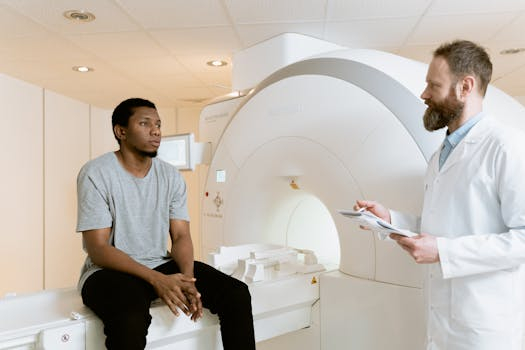AI in Medical Diagnosis: Who’s Liable When Algorithms Make Mistakes?
The use of artificial intelligence (AI) in the medical field has revolutionized the way doctors diagnose and treat diseases. With its ability to quickly analyze vast amounts of data and identify patterns, AI has greatly improved the accuracy and speed of medical diagnoses. However, as with any new technology, there are concerns about its potential mistakes and the issue of liability when these mistakes occur. In this article, we will explore the role of AI in medical diagnosis and who is liable when algorithms make mistakes.
The Rise of AI in Medical Diagnosis
The use of AI in medical diagnosis is rapidly increasing, as it has shown great promise in improving healthcare outcomes. AI algorithms can analyze large quantities of data, including medical records, test results, and imaging scans, and provide physicians with accurate and timely diagnosis recommendations. This has led to more efficient and effective treatments, as well as reduced costs for patients.
One example of AI in medical diagnosis is IBM’s Watson for Oncology, which analyzes medical data and provides treatment suggestions for cancer patients. Another example is Google’s DeepMind Health, which uses AI to analyze retinal scans and detect early signs of blindness. These and other AI systems have not only improved accuracy in diagnosis, but also reduced diagnostic errors and improved patient outcomes.
The Potential Risks of AI in Medical Diagnosis
While AI has undoubtedly improved medical diagnosis, there are still concerns about its potential risks. As with any technology, AI algorithms are not infallible and can make mistakes. These mistakes may be due to errors in the data input or the algorithm itself. For example, in 2018, a study found that an AI algorithm used to diagnose pneumonia in chest X-rays had a higher error rate in diagnosing pneumonia in patients with different skin types.
Another concern is the black box nature of AI, which means that the reasoning behind the algorithm’s decision is not always transparent or understandable to humans. This can make it challenging to identify the cause of any mistakes made by the algorithm and determine who is liable for these errors.
The Issue of Liability in AI Medical Diagnosis
In traditional medical diagnosis, the physician is usually held liable for any mistakes made in the diagnosis process. However, with AI, the lines of liability become blurred. As AI systems become more prevalent in medical settings, it raises the question of who is responsible when an algorithm makes a mistake.
Is it the physician who used the AI system to make the diagnosis? Is it the company that developed the AI algorithm? Or is it the person or team who input the data into the algorithm? These are complex questions that do not have clear-cut answers.
One potential solution to this issue is to hold the companies or individuals who develop AI algorithms accountable for any mistakes made by the algorithms. However, this could stifle innovation and discourage further development and use of AI in the medical field.
Another option is to allocate the responsibility between multiple parties, such as the physician, the AI company, and the data input team. However, this would require clear guidelines and protocols for determining who is at fault in the case of an AI error. This could also lead to lengthy legal battles and make it challenging to reach a resolution quickly.
Closing Thoughts
AI is transforming the way medical diagnoses are made, leading to better outcomes for patients. However, as with any new technology, there are risks and concerns that need to be addressed. The issue of liability when AI algorithms make mistakes is a complex one that requires careful consideration and clear guidelines to determine who is responsible. As AI continues to evolve and become more prevalent in the medical field, it is essential to establish a framework for addressing liability in these situations to ensure the continued progress and success of AI in healthcare.








